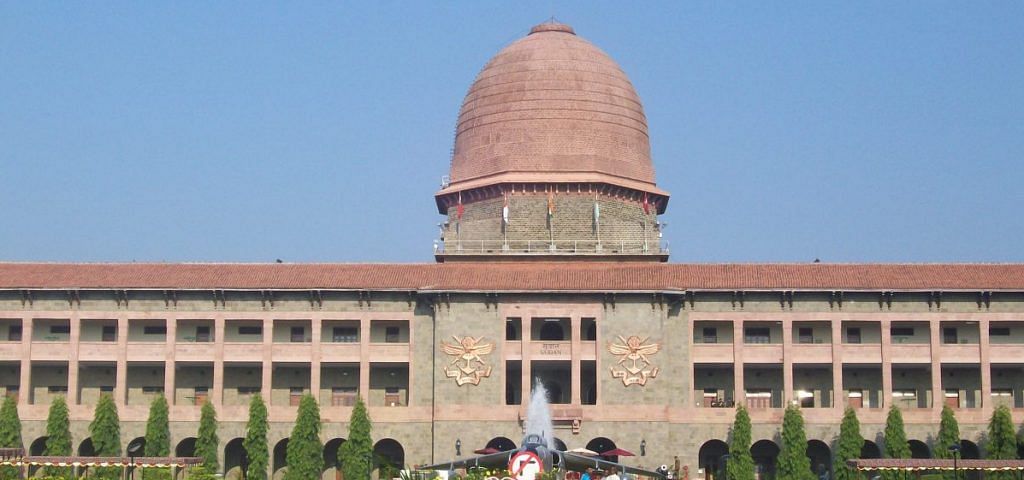Preoccupied with immediate organisational and operational challenges, the services have ignored military education for too long.
The recent news about CBI raids on the principal of the National Defence Academy and a few other civilian faculty members is not surprising because the whole education system in our military academies has been suspect, and such aberrations were waiting to happen.
Addressing this as an isolated occurrence will not provide a holistic solution to the problem – how do we produce well-educated and not just well-trained officers in India’s armed forces?
Having thoroughly studied the Indian system of how we go about educating military officers for almost 30 years, served as a faculty member at various Indian institutions for nine years in a 35-year career, and visited the United States Air Force Academy (USAFA) and several war colleges in the US recently as a guest speaker, I am convinced that we are still confused about the difference between education and training.
Consequently, whenever confronted with problems regarding professional military education at various levels, our military leadership prefers to showcase our highly efficient and effective training systems as an adequate alternative for a poor education ecosystem.
Lack of upgrade
Much attention is paid to keep the education-training cycle for the civil services at institutions like the IAS Academy at Mussoorie contemporary. But the MoD is least interested in facilitating the same at institutions like the National Defence Academy or individual service academies such as the Indian Military Academy (IMA), the Indian Naval Academy, or the Air Force Academy (AFA).
Why should they really be interested when service leadership itself has invariably been preoccupied with immediate organisational and operational challenges and never really demanded a stake in education?
The archaic and inefficient UPSC system has been entrusted with the task of selecting teachers for Sainik/military schools, NDA and all academies. Selection of faculty members, monitoring their performance and academic calibre and, most importantly, frequent upgrading of academic syllabi have been weak areas that need attention.
Killing interest in education
During the 1970s and 1980s, we had dedicated teachers and lecturers at military schools and the NDA, who could sow the spark of creativity or plant latent seeds of intellectual curiosity in the minds of cadets.
The writing skills imparted by G.M. Khan, an English teacher of mine at the Rashtriya Indian Military College, have stood me in good stead over the years. Similarly, Professor Rajan, the HoD of the IR, geopolitics and military history department at NDA Khadakwasla, was an inspiring and committed teacher whose lectures many of us never missed.
Now, when I speak to cadets at the NDA and other institutions, they have no civilian or military educators to look up to; they have many trainers though (military instructors on the drill and PT field, or weapons and flying or sailing instructors). This is the point where mediocre or ad hoc educators kill any interest in education.
Commandants at institutions like the NDA are powerful leaders with vast resources and immense scope to make an impact on both education and training. However, barring a few exceptions, very rarely have they been positioned there because they are considered expert educators or trainers.
It is a routine, stand-in-line post where either the three-star officer is positioned as a stop-gap arrangement till an operational post falls vacant, or because it is the turn of a particular service to tenet the joint establishment vacancy, or the officer has insufficient residual service to assume a C-in-Cs post. Consequently, their interest in education and academics is at best superficial, and at worst indifferent.
Solving the problem
This problem can be overcome if all these institutions have a dean of academics and faculty, who is either an accomplished academic or a practitioner scholar, to oversee a combination of civilian and military faculty and report to the commandant.
For example, I met the dean of faculty at the USAFA, Brigadier General Andrew Armacost, a PhD from MIT, who was selected from several applicants. The selection was not based on his rank or operational profile, but on his understanding and commitment to both training and education. The first question he bounced on me was: How are our academies addressing the challenges of offering a holistic education for officer cadets that offers opportunities for combining a technological focus with adequate awareness of the humanities and /or pure sciences?
Clearing the rot is not a difficult proposition. But it needs a willingness on the part of the military to acknowledge the need for better education as a critical tool for producing officers and men, who will fit into the rapidly changing milieu of contemporary security landscapes and the constantly changing character of warfare in the 21st century.
It also needs support from the bureaucracy and the political leadership, which should not see hidden demons in a well-educated and intellectually empowered military. Not many know that the Goldwater Nichols Act that reformed the US military included sweeping reforms in professional military education.
